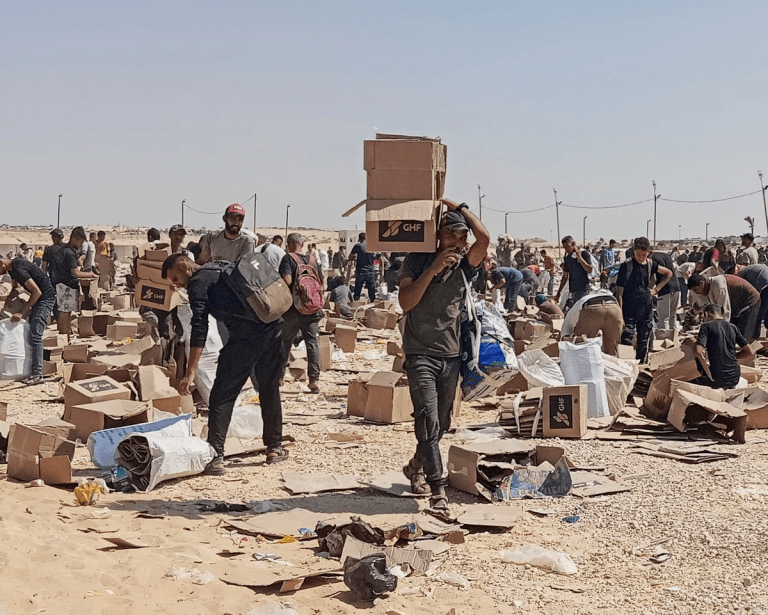Israel’s ongoing genocide in Gaza has taken a new turn with the announcement of a controversial plan last week by Israeli Defense Minister Yisrael Katz to build a “humanitarian city” on the ruins of Rafah.
It has prompted sharp criticism from human rights experts and even former Israeli officials, raising concerns about forced displacement and long-term consequences for Gaza’s population.
What Is the Proposed Humanitarian City?
The proposed humanitarian city would be set up in southern Gaza, starting with the relocation of 600,000 already displaced Palestinians. Eventually, it is expected to hold the entire population of Gaza.
Entry would involve strict security screening, and residents would not be allowed to leave. The area would be tightly controlled by Israeli forces and made up of temporary shelters like tents.
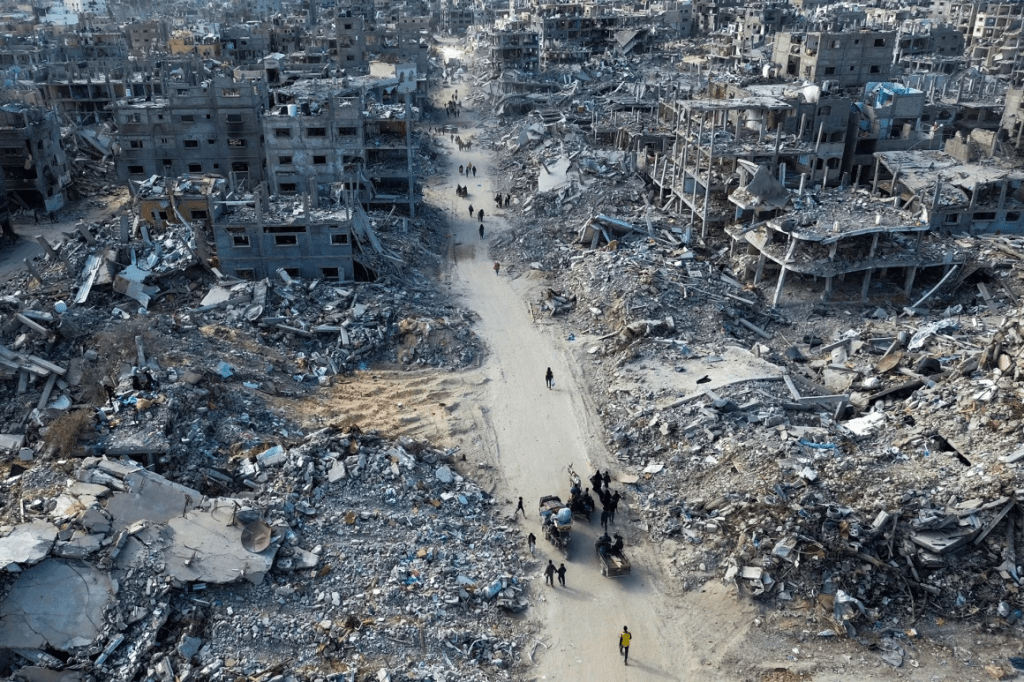
The Controversy
Legal experts and rights groups have criticized both the substance and framing of the plan as both “humanitarian” and a “city”.
Israeli lawyer Michael Sfard called it “a blueprint for a crime against humanity,” warning that forced relocations under military control violate international law.
He also challenged the use of the term “city,” arguing that the restricted movement, military control, and lack of infrastructure make the label misleading and unreflective of genuine urban conditions.
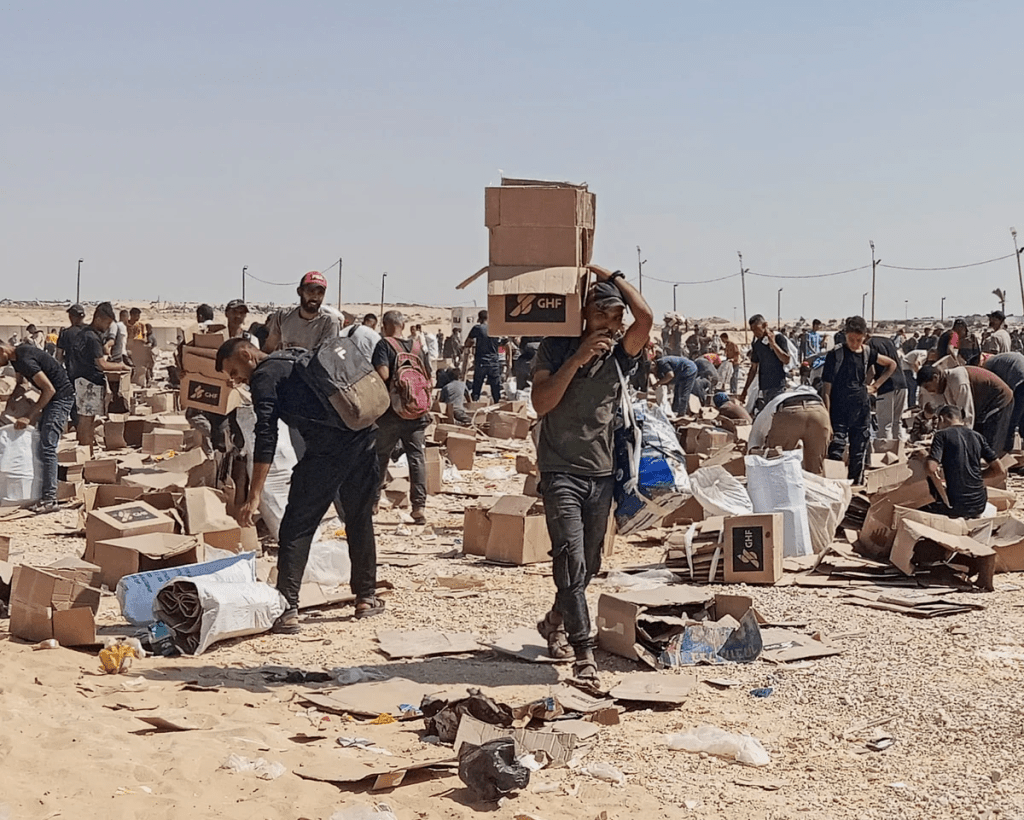
Former Prime Minister Criticizes the Plan
Former Israeli Prime Minister Ehud Olmert added his voice to the growing criticism.
In an interview with The Guardian, Olmert referred to the proposed site as a “concentration camp” and warned that its construction would be viewed internationally as an act of ethnic cleansing.
While he stopped short of labeling the current genocide in Gaza as such, he said the relocation of people into a sealed camp without return options would make this “the inevitable interpretation”.
A Credibility Problem
Olmert also expressed doubts about the humanitarian framing of the project, particularly in the context of prior statements by Israeli officials advocating for the expulsion of Gaza’s population.
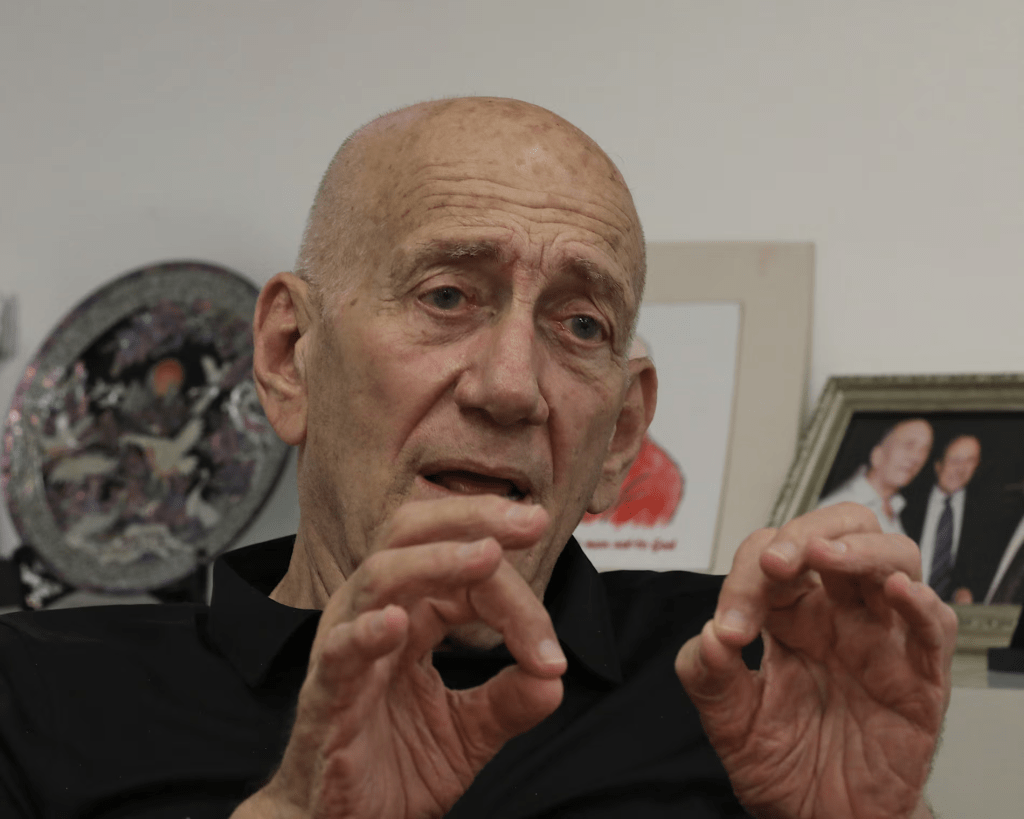
Response From Palestinian Civil Society
Amjad Shawa, director of the Palestinian NGO Network, called the plan part of a broader displacement strategy and warned it would deepen the humanitarian crisis. He urged the international community to reject what he described as an attempt to normalize forced relocation under occupation.
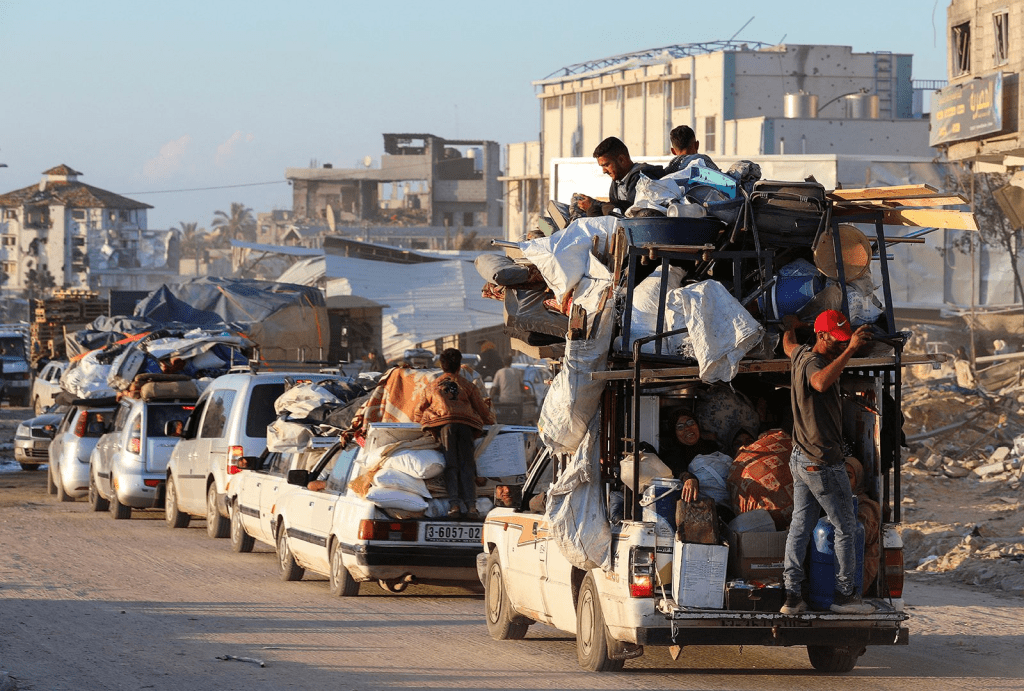
Scrapped or Scaled Back? Uncertainty Around the Plan
Prime Minister Benjamin Netanyahu has reportedly scrapped the “humanitarian city” plan, telling the IDF to propose faster, cheaper alternatives during a tense cabinet meeting, Israeli media reported.
The IDF had objected to the proposal, citing high costs, a lengthy timeline of up to a year, and concerns it could hinder efforts to free remaining hostages.
However, according to CNN, Netanyahu had asked “to make [the Humanitarian City’s] establishment shorter and less expensive.”
Conclusion
The proposal to build a “humanitarian city” in southern Gaza has sparked widespread reaction due to its scale, implications, and timing.
While Israel frames the plan as a protective measure, critics argue it risks formalizing mass displacement. As the genocide continues, the international community faces mounting pressure to respond not only to the ongoing humanitarian crisis but also to the broader political and legal questions this new proposal raises.
WE SAID THIS: Don’t Miss…Inside Israel’s Undeclared Nuclear Weapons Program


